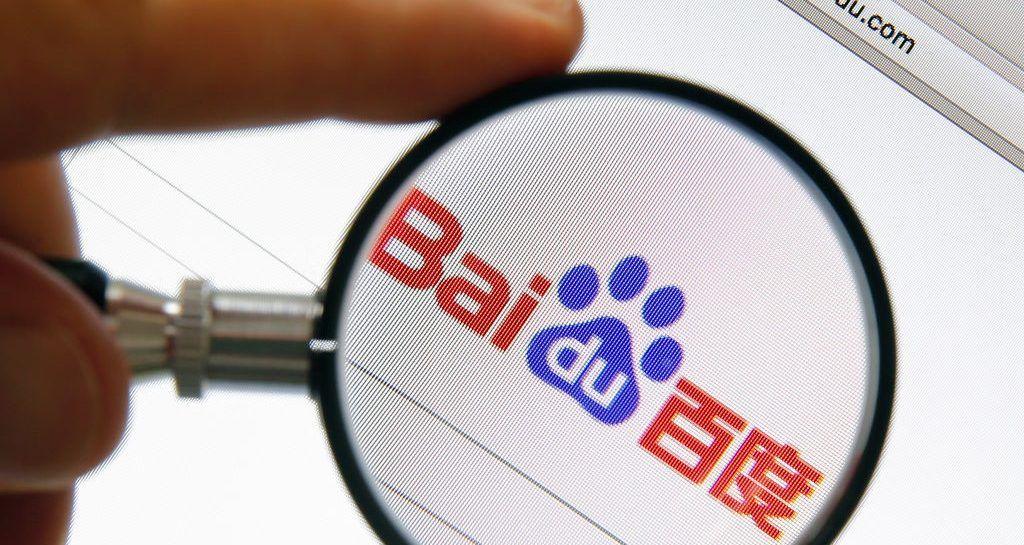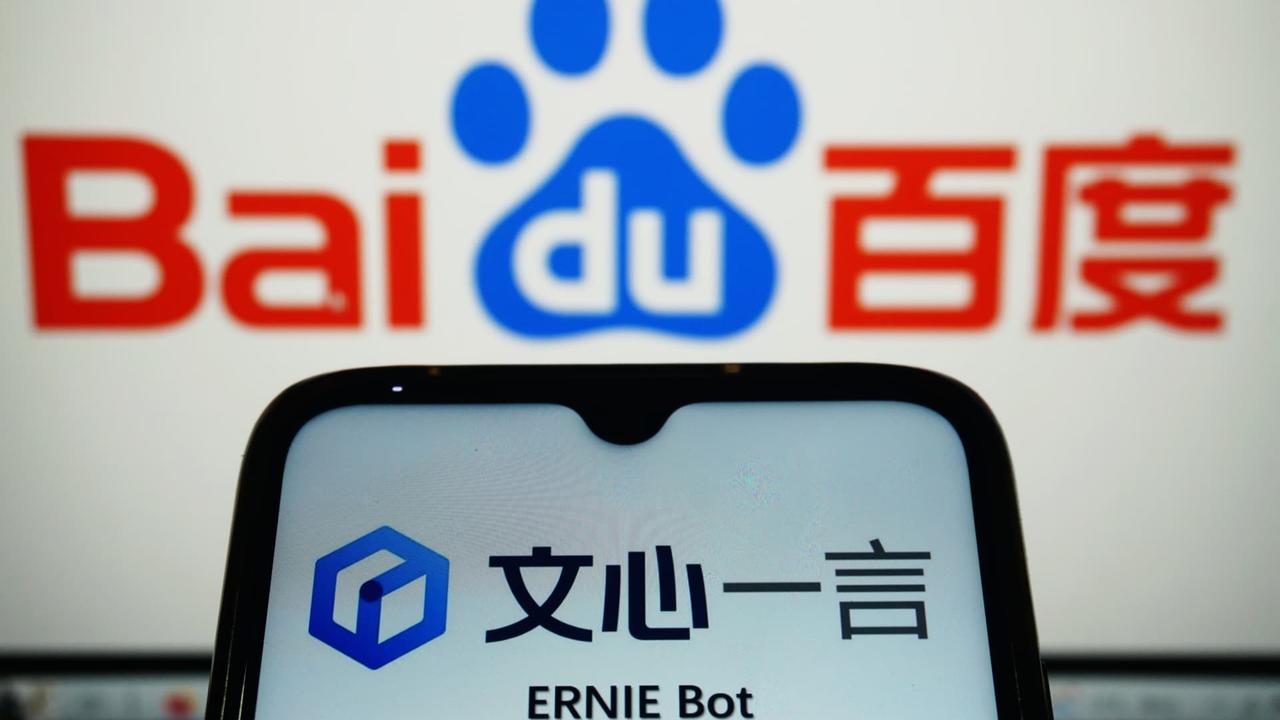Baidu to Launch Upgraded AI Model Ernie 4.5 in Mid-March, Shifting to Open-Source Strategy
3 Sources
3 Sources
[1]
China's Baidu Said to Launch Upgraded AI Ernie Model in Mid-March
Baidu is China's earliest tech giants to launch a ChatGPT-style chatbot China's Baidu will launch the next generation of its artificial intelligence model Ernie in mid-March, which will see improved capabilities in areas such as reasoning, a source with direct knowledge of the matter said. The upgraded 4.5 Ernie model will also feature enhanced multimodal capabilities, the source said. Multimodal AI systems are capable of processing and integrating various types of data - like text, video, images, and audio - and can convert content across these formats. Baidu had said earlier this month it would gradually launch the Ernie 4.5 series in the coming months and officially make it open source from June 30. Baidu did not immediately respond to a request for comment. Chinese AI startup DeepSeek's roll-out of AI models which it says is on par with, or even better than, industry-leading models in the United States at a fraction of the cost, have roiled the industry and re-energised the global AI race. Baidu, one of China's earliest tech giants to launch a ChatGPT-style chatbot, has struggled to gain widespread adoption for its Ernie large language model, despite claiming performance comparable to OpenAI's GPT-4, amid fierce competition. The emergence of DeepSeek has further challenged the Beijing-based company's AI aspirations. Baidu CEO Robin Li had previously said that keeping AI models closed-source was the only way forward for development in the sector, but has since pivoted after DeepSeek's success. Li told analysts during an earnings call this month that Ernie 4.5 will be the company's "best model ever,", acknowledging that DeepSeek's success had prompted the shift towards an open-source approach. Earlier this week, Alibaba also announced it would make its video- and image-generating AI model, Wan 2.1, open source, further increasing competition in the sector. © Thomson Reuters 2025
[2]
China's Baidu to launch upgraded AI Ernie model in mid-March, source says
BEIJING, Feb 27 (Reuters) - China's Baidu (9888.HK), opens new tab will launch the next generation of its artificial intelligence model Ernie in mid-March, which will see improved capabilities in areas such as reasoning, a source with direct knowledge of the matter said. The upgraded 4.5 Ernie model will also feature enhanced multimodal capabilities, the source said, an Multimodal AI systems are capable of processing and integrating various types of data - like text, video, images, and audio - and can convert content across these formats. Baidu had said earlier this month it would gradually launch the Ernie 4.5 series in the coming months and officially make it open source from June 30. Baidu did not immediately respond to a request for comment. Chinese AI startup DeepSeek's roll-out of AI models which it says is on par with, or even better than, industry-leading models in the United States at a fraction of the cost, have roiled the industry and re-energised the global AI race. Baidu, one of China's earliest tech giants to launch a ChatGPT-style chatbot, has struggled to gain widespread adoption for its Ernie large language model, despite claiming performance comparable to OpenAI's GPT-4, amid fierce competition. The emergence of DeepSeek has further challenged the Beijing-based company's AI aspirations. Baidu CEO Robin Li had previously said that keeping AI models closed-source was the only way forward for development in the sector, but has since pivoted after DeepSeek's success. Li told analysts during an earnings call this month that Ernie 4.5 will be the company's "best model ever,", acknowledging that DeepSeek's success had prompted the shift towards an open-source approach. Earlier this week, Alibaba also announced it would make its video- and image-generating AI model, Wan 2.1, open source, further increasing competition in the sector. Reporting by Liam Mo and Brenda Goh; Editing by Rachna Uppal Our Standards: The Thomson Reuters Trust Principles., opens new tab Suggested Topics:Disrupted
[3]
Baidu to launch updated Ernie AI model by mid-March - Reuters By Investing.com
Investing.com-- Baidu Inc (NASDAQ:BIDU) is expected to launch an updated version of its Ernie artificial intelligence model by mid-March, as the Chinese internet giant looks to further its push into the sector, Reuters reported on Thursday. The upgraded Ernie 4.5 model will feature improved capabilities for reasoning and multimodal support, the Reuters report said, citing a source with direct knowledge of the matter. The Reuters report comes just weeks after Baidu signaled that it will make the next generation of its Ernie model open-source later this year. Baidu also outlined plans to make its AI chatbot Ernie Bot free from April 1, with the new model likely to be launched in the run-up to this shift. The Chinese internet giant has rushed to capitalize on increasing interest in China's AI capabilities after the launch of DeepSeek R1 in late-January. Baidu's shift to a free, open-source model also likely represents a bid to increase its market share, given that the company has largely lagged its Chinese peers in garnering AI users, despite beginning investment in the sector as early as 2022. Baidu claims that the current 4.0 model of its Ernie AI matches the performance of rivals such as OpenAI's GPT-4. The company has about 13 million monthly active users for its Ernie bot, compared to 78.6 million for ByteDance's Duobao, which is the most popular AI application in China, according to January data from AI tracker Aicpb.com. Recent entrant DeepSeek has already outpaced Baidu in adoption, with its models boasting 33.7 million monthly active users just a month since their launch.
Share
Share
Copy Link
Baidu, a leading Chinese tech giant, is set to release an enhanced version of its AI model, Ernie 4.5, in mid-March. This upgrade comes with improved reasoning and multimodal capabilities, marking a strategic shift towards open-source development in response to increasing competition in China's AI sector.

Baidu's Upcoming AI Model Upgrade
Baidu, one of China's leading tech giants, is poised to launch the next generation of its artificial intelligence model, Ernie 4.5, in mid-March. This upgraded version is expected to showcase enhanced capabilities, particularly in the areas of reasoning and multimodal processing
1
. The announcement comes as Baidu aims to strengthen its position in the competitive AI landscape.Enhanced Capabilities of Ernie 4.5
The new Ernie 4.5 model will feature improved multimodal capabilities, allowing it to process and integrate various types of data, including text, video, images, and audio. This advancement enables the model to convert content across different formats more effectively
2
. Baidu CEO Robin Li has described Ernie 4.5 as the company's "best model ever," highlighting its significance in Baidu's AI strategy.Strategic Shift to Open-Source
In a notable shift from its previous stance, Baidu has announced plans to make Ernie 4.5 open-source starting June 30. This decision marks a significant change in the company's approach, as CEO Robin Li had previously advocated for keeping AI models closed-source
1
. The move towards open-source development appears to be influenced by the success of competitors like DeepSeek, which has gained traction with its open-source AI models.Competitive Landscape in China's AI Sector
The launch of Ernie 4.5 comes amid intensifying competition in China's AI industry. DeepSeek, a Chinese AI startup, has recently introduced AI models that claim to match or surpass leading U.S. models at a fraction of the cost
2
. This development has reinvigorated the global AI race and challenged established players like Baidu.Market Position and User Adoption
Despite being one of the earliest Chinese tech companies to launch a ChatGPT-style chatbot, Baidu has faced challenges in gaining widespread adoption for its Ernie large language model. The company claims that Ernie's performance is comparable to OpenAI's GPT-4, but it has struggled to attract users in the face of fierce competition
3
.Related Stories
User Statistics and Market Share
Recent data from AI tracker Aicpb.com reveals that Baidu's Ernie bot has approximately 13 million monthly active users. In contrast, ByteDance's Duobao, the most popular AI application in China, boasts 78.6 million users. Notably, DeepSeek, a recent entrant to the market, has already surpassed Baidu with 33.7 million monthly active users just one month after its launch
3
.Industry-wide Trends
The shift towards open-source AI models is not limited to Baidu. Alibaba, another major player in China's tech sector, recently announced that it would make its video- and image-generating AI model, Wan 2.1, open source
2
. This trend indicates a broader movement in the industry towards more collaborative and accessible AI development.Future Outlook
As Baidu prepares to launch Ernie 4.5 and transition to an open-source model, the company is also planning to make its AI chatbot Ernie Bot free from April 1
3
. These strategic moves are aimed at increasing Baidu's market share and user adoption in the rapidly evolving AI landscape. The success of these initiatives could significantly impact Baidu's position in the global AI race and shape the future of AI development in China.References
Summarized by
Navi
Related Stories
Baidu Shifts AI Strategy: ERNIE Bot Goes Free, Open-Source Model Announced
12 Feb 2025•Technology

Baidu Launches Advanced AI Models ERNIE 4.5 and X1, Challenging Global Competitors
16 Mar 2025•Technology

Baidu Launches ERNIE 5.0 AI Model, Claims Performance Edge Over GPT-5 and Gemini 2.5 Pro
13 Nov 2025•Technology

Recent Highlights
1
Google Gemini 3.1 Pro doubles reasoning score, beats rivals in key AI benchmarks
Technology

2
ByteDance's Seedance 2.0 AI video generator triggers copyright infringement battle with Hollywood
Policy and Regulation

3
ChatGPT cracks decades-old gluon amplitude puzzle, marking AI's first major theoretical physics win
Science and Research





